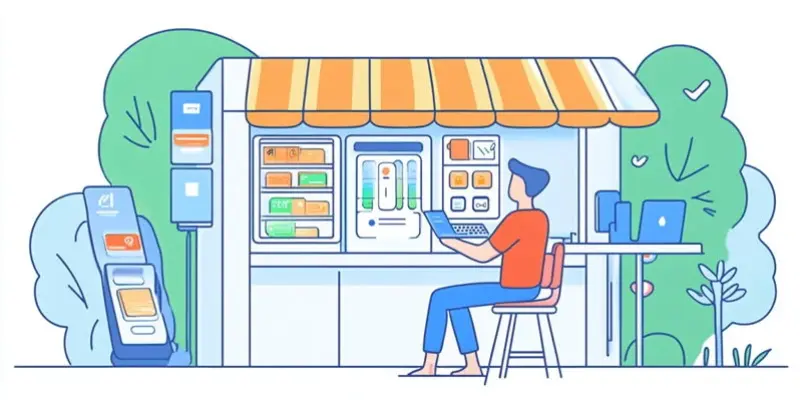In a rapidly evolving digital landscape, customer experience (CX) remains a powerful differentiator for businesses vying for consumer loyalty and satisfaction. Organizations have poured resources into enhancing CX, yet many still struggle to deliver exceptional service. A study by Cisco revealed a concerning gap in customer satisfaction, noting significant abandonment rates due to poor experiences. The CX terrain is set to undergo a transformative shift driven by artificial intelligence (AI), Rich Communication Services (RCS), and data unification. These technological advancements hold the promise of revolutionizing how companies interact with customers, meet their expectations, and ultimately, build lasting relationships based on trust and efficacy.
AI Agents Revolutionizing Self-Service
Advancements in AI are paving the way for a new era of self-service, wherein AI agents will offer personalized, conversational customer engagement solutions. These AI-powered agents will provide seamless and intelligent automated interactions, significantly enhancing resolution speeds and overall customer satisfaction. By introducing more human-like interactions, AI will reduce customer frustration and allow human agents to focus on handling more complex cases. Businesses across industries are expected to integrate AI agents aligned with their values, simplifying processes using prebuilt templates and low-code/no-code frameworks. Cisco’s study draws attention to a notable divide between leaders and laggards in AI virtual agent adoption, illustrating the importance of staying ahead in this competitive space.
The impact of AI in customer service extends beyond just sophisticated automation. These intelligent agents will engage across various communication channels, providing consistent and efficient service. This multi-channel approach will ensure that customers receive timely responses and effective solutions regardless of whether they contact the business via chat, email, or phone. AI’s role doesn’t stop at problem-solving; it will also offer proactive support, anticipating customer needs and addressing potential issues before they escalate. By 2025, the deployment of AI agents won’t merely be an option but a necessity for organizations aiming to deliver superior customer experiences and retain their competitive edge in an increasingly AI-driven world.
Hyper-Personalization as a Standard
By the year 2025, hyper-personalization will become a cornerstone of customer experience, driven predominantly by AI. Companies will harness vast troves of customer data to craft personalized journeys that cater to individual preferences and anticipate specific needs. This level of customization will not only improve customer satisfaction but also create opportunities for upselling and cross-selling. With the ability to provide tailored recommendations and offers, companies will build stronger relationships with their customers, fostering loyalty and trust. At the same time, proactive communication, such as timely reminders and easy response options, will further reduce customer effort and preempt potential issues, driving a seamless CX.
The growing emphasis on hyper-personalization underscores a shift towards more customer-centric business models. By leveraging AI, companies can tap into real-time data insights that reveal behavioral patterns, sentiment, and preferences. This depth of understanding will enable businesses to enhance every interaction and touchpoint, making each customer feel valued and understood. Importantly, the proactive nature of AI-driven personalization will address customer concerns even before they voice them, ensuring a smoother experience. Currently, a vast gap exists between leaders and laggards in the use of AI for proactive communication—61% of CX leaders already utilize AI in this capacity, compared to a mere 6% of laggards. Bridging this gap will be crucial for organizations aiming to remain relevant and competitive.
RCS Adoption Will Skyrocket
Rich Communication Services (RCS) are anticipated to experience a surge in adoption in 2025, revolutionizing customer interactions with rich media and interactive features. Unlike traditional SMS, RCS supports images, videos, and other multimedia, making it a compelling channel for businesses to promote products, send reminders, and provide support. The introduction of end-to-end encryption and branded profiles further enhances customer trust and security, setting a new industry standard for business messaging. With support for both iPhone and Android, RCS unifies communication across devices, offering a consistent and enriched experience that engages customers in meaningful ways.
The evolution of RCS represents a significant shift in how companies communicate with their customers, moving away from plain text messages to a more dynamic and interactive format. This technology fosters stronger engagement by allowing businesses to deliver personalized content directly to customers’ devices. Whether it’s sending promotional offers, updates about order status, or facilitating customer service inquiries, RCS provides a versatile platform that caters to a wide range of needs. The widespread adoption of RCS will also drive innovation in customer engagement strategies, encouraging businesses to explore new ways to captivate and retain their audiences through visually appealing and convenient interactions.
Unification of CX Data
In an ever-changing digital world, customer experience (CX) continues to be a major factor distinguishing businesses in their quest for consumer loyalty and satisfaction. Companies have invested heavily in improving CX, yet many still find it challenging to provide outstanding service. A Cisco study highlighted a worrying gap in customer satisfaction, with high abandonment rates due to poor experiences. The landscape of CX is expected to undergo a significant transformation fueled by artificial intelligence (AI), Rich Communication Services (RCS), and data unification. These technological advancements have the potential to completely change the way companies engage with customers, fulfill their expectations, and ultimately, foster long-lasting relationships built on trust and effectiveness. This evolution in CX will likely lead to more personalized, efficient, and engaging interactions, setting new standards for customer service and satisfaction across various industries.

